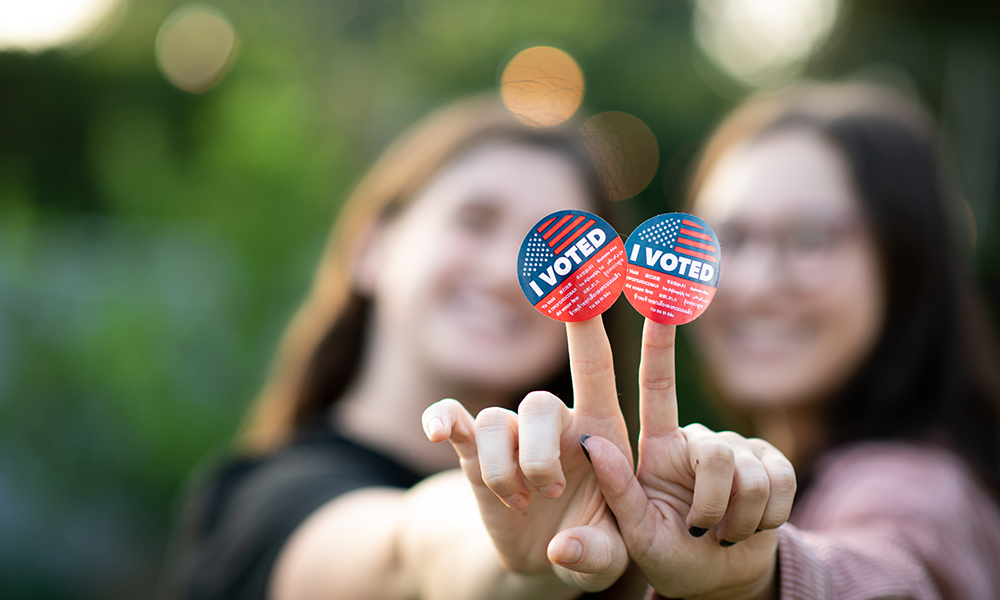Voting in any election has benefits for young voters
JMU Headlines
HARRISONBURG, Va. — When people vote, including young voters, they participate in shaping the direction of their local community, state, and nation said James Madison University expert, Ben Blankenship.
Blankenship is a professor of psychology at JMU and has expertise in the area of elections and political psychology, such as why people vote.
For college students, Blankenship said voting in their college towns can help them broaden their experiences beyond the campus grounds.
“For students, it's an opportunity to voice concerns about issues that directly affect them, such as housing policies, student loans and job opportunities for recent graduates,” Blankenship said.
Furthermore, Blankenship said, “I would argue that it is almost more important to vote in ‘off-year elections,’ where many state and local-level offices are decided. Some of the most important decisions that affect college students, such as housing affordability/availability, traffic/parking regulations, and public safety/policing, are decided primarily by local elected officials. If college students do not vote locally, they are essentially allowing non-student residents to select the officials who will make these decisions that will ultimately affect them.”
Blankenship said college students typically have the choice to register to vote in their home state/city or where they attend college. The laws vary by state, but generally, if a student regards their college address as their current residence, they have the right to register and vote from that address.
Another benefit of students voting in their college towns Blankenship said is that it can help form bonds between students and local residents.
“There is often a very strong divide between students and the locals in many college towns,” he said, “and I think this can be alleviated by college students getting more involved in things like local politics. By having students meet with and work with locals, they can learn about each other's struggles, goals and concerns.”
###
Contact: Eric Gorton, gortonej@jmu.edu, (540)908-1760
